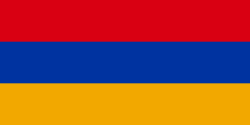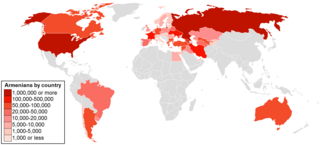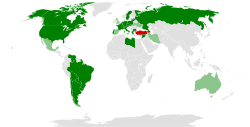


The following outline is provided as an overview of and topical guide to Armenia:
Contents
- General reference
- Geography of Armenia
- Neighbours of Armenia
- Environment of Armenia
- Regions of Armenia
- Demography of Armenia
- Government and politics of Armenia
- Branches of government
- Constitution of Armenia
- Foreign relations of Armenia
- Law and order in Armenia
- Military of Armenia
- Local government in Armenia
- History of Armenia
- Culture of Armenia
- Art in Armenia
- Religion in Armenia
- Sports in Armenia
- Economy and infrastructure of Armenia
- Education in Armenia
- See also
- References
- External links
Armenia , officially the Republic of Armenia, is a landlocked country in the Armenian highlands of West Asia . It is a part of the Caucasus region and is bordered by Turkey to the west, Georgia to the north, Azerbaijan to the east, and Iran and the Azerbaijani exclave of Nakhchivan to the south. Yerevan is the capital, largest city and financial center.


















